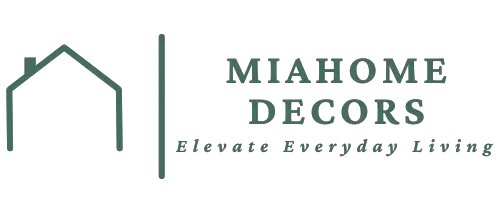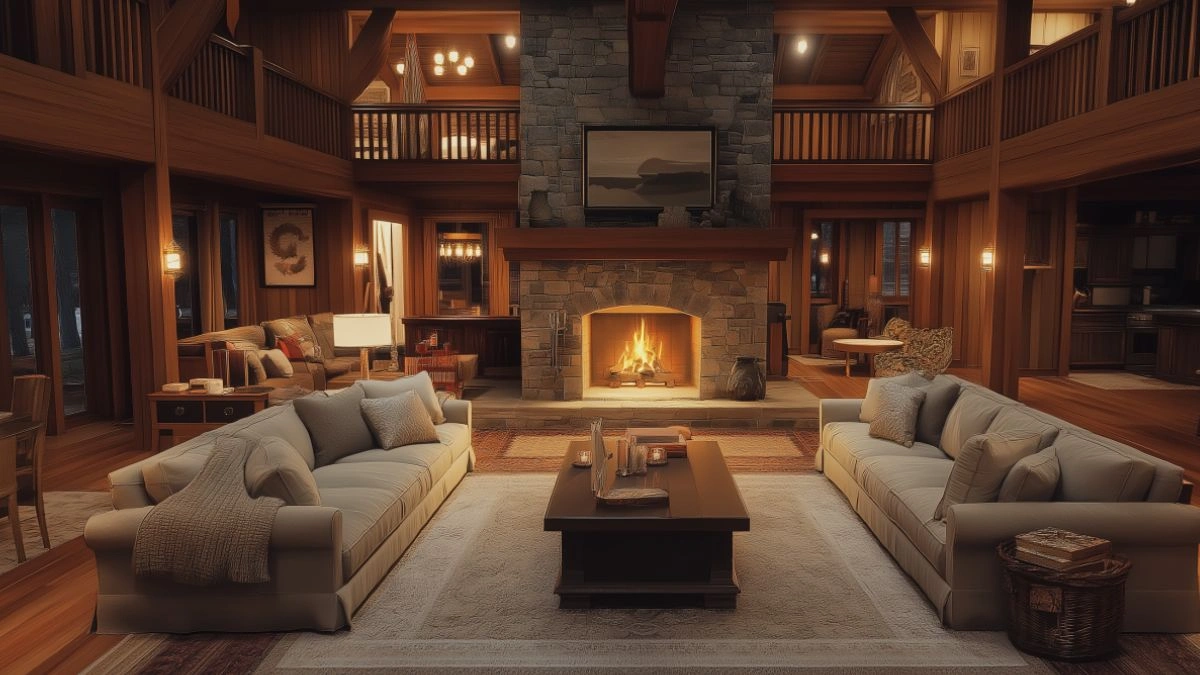Great Rooms with Fireplace Focal Points: Warmth & Style
Table of Contents
A great room is more than just a living space—it’s the heart of the home, where warmth, connection, and style converge. And at the center of many of the most inviting great rooms is a fireplace that does more than heat the room; it anchors it. According to the National Association of Home Builders, 60% of homeowners view a fireplace as a desirable feature, with many preferring it as the main focal point of their living area.
Whether you’re designing from scratch or enhancing your existing space, integrating a fireplace focal point into your great room adds both functionality and a timeless aesthetic. From sleek contemporary styles to rustic stone hearths, the fireplace becomes the visual and emotional anchor of the room—drawing the eye and setting the mood.
In this guide, we’ll explore how to design and style great rooms where the fireplace serves as the main attraction. You’ll find creative layout ideas, decorating tips, and functional considerations that bring together comfort and visual appeal. We’ll also highlight fireplace materials, mantel styling, lighting, and seasonal versatility—all while showcasing how to achieve that coveted balance between coziness and sophistication.
Centering the Room Around the Hearth
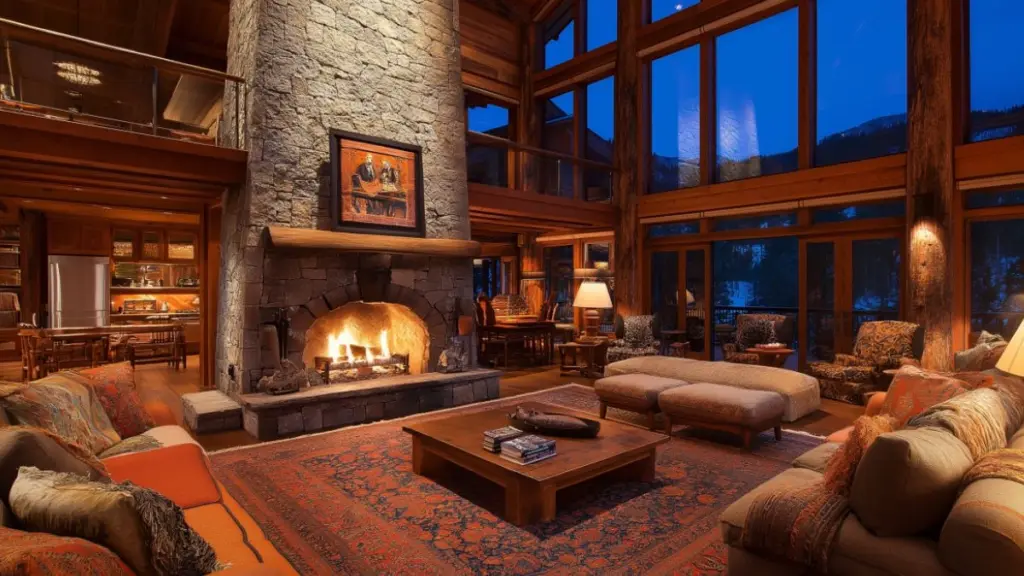
Designing a great room around the fireplace starts with spatial intention. The fireplace should act as the room’s anchor, guiding the layout and visual rhythm. Whether it’s centrally located or positioned on a feature wall, its placement affects furniture arrangement, sightlines, and the room’s overall balance.
Begin by orienting your main seating pieces—like sofas and accent chairs—toward the fireplace. Consider using a rug to frame the area and define it as the main gathering zone. Coffee tables and ottomans should enhance, not compete with, the fireplace’s prominence. For open-concept homes, the fireplace can also serve as a natural divider between living and dining areas.
Room Layout Tips
| Tip | How to Implement |
|---|---|
| Anchor with Area Rug | Use a rug that unifies the seating and fireplace |
| Symmetrical Furniture Layout | Place sofas/chairs to mirror the fireplace’s position |
| Add a Visual Frame | Use ceiling beams, paneling, or built-in shelving |
| Maintain Clear Sightlines | Avoid blocking the view with bulky décor |
Choosing the Right Fireplace Style
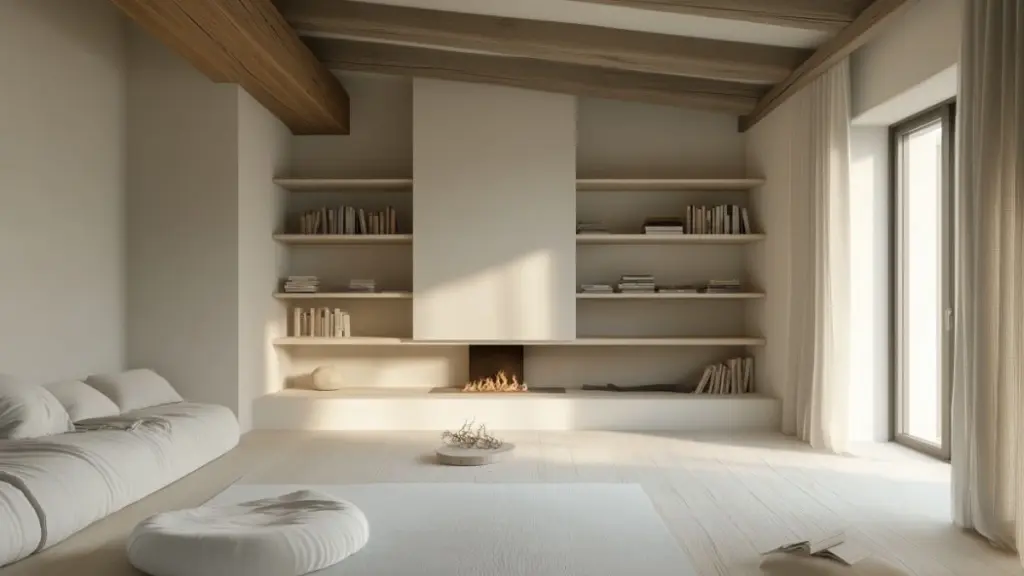
Not all fireplaces are created equal—and that’s a good thing. Your fireplace can reflect your personal taste, whether your vibe leans rustic farmhouse, mid-century modern, or sleek minimalist. Materials, scale, and surrounding architecture all play into its impact.
Traditional homes often feature wood or stone mantels with brick or carved surrounds. Modern spaces may use linear gas fireplaces with marble or concrete finishes. Don’t underestimate color—dark surrounds add drama, while lighter tones keep things airy.
Popular Fireplace Styles
| Style | Key Features |
|---|---|
| Rustic Stone | Natural textures, chunky mantels, organic tones |
| Contemporary Linear | Sleek shape, often set into a wall with clean lines |
| Traditional Mantel | Ornate detailing, wood surround, symmetrical elements |
| Scandinavian Minimalist | White plaster, floating hearth, simple firebox |
Styling the Mantel with Personality
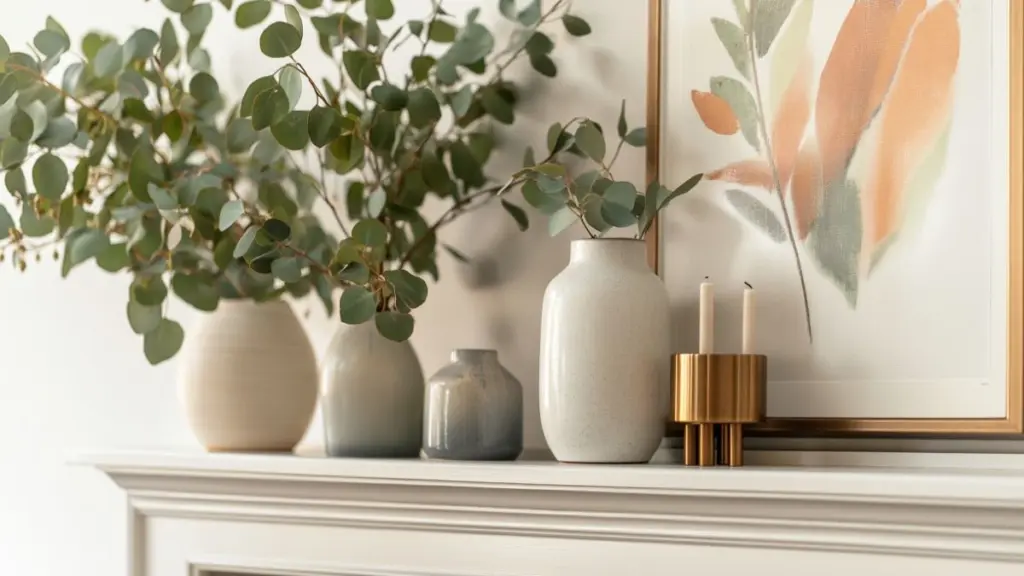
The mantel is prime real estate for styling—and your opportunity to set the tone for the room. Whether you’re going for refined or relaxed, layering artwork, vases, candles, and greenery gives the fireplace dimension and personality.
Avoid clutter. Use varying heights and textures to create visual interest. A large framed mirror or abstract artwork as a centerpiece can ground the space, while sculptural objects or vintage finds add a collected feel. Mantel décor can also change seasonally to keep the room feeling fresh.
Mantel Styling Breakdown
| Item Type | Styling Suggestion |
|---|---|
| Centerpiece Art/Mirror | Anchor the mantel visually with one dominant item |
| Greenery/Florals | Add life with faux eucalyptus, pampas, or fresh stems |
| Candles & Holders | Vary heights for drama; use metallics for warmth |
| Personal Accents | Include a favorite photo frame, sculpture, or keepsake |
Balancing Warmth with Natural Light
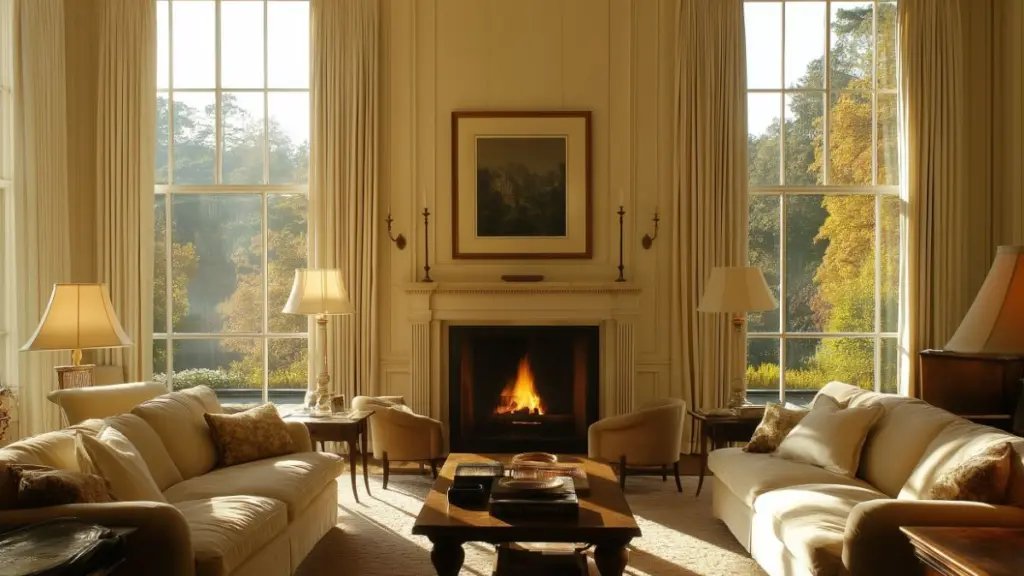
Fireplaces bring warmth, but pairing them with natural light keeps the space from feeling too heavy or dark. If your great room features large windows or skylights, balance the fire’s glow with plenty of daylight.
Use light, airy curtains or roman shades that soften without blocking sunlight. Incorporate reflective surfaces—mirrors, glass, or metallic accents—to bounce light around. Complement the fire’s warmth with layered lighting, such as sconces, floor lamps, or dimmable overhead fixtures, to create different moods throughout the day.
Lighting & Balance Tips
| Element | Design Strategy |
|---|---|
| Natural Light | Use sheers or minimal window coverings |
| Reflective Décor | Mirrors, glass tables, or metallic frames enhance brightness |
| Ambient Lighting | Add dimmable sources for soft evenings |
| Warm Bulbs | Match bulb color temp (2700K–3000K) to the fireplace glow |
Designing a Seasonal Fireplace Display
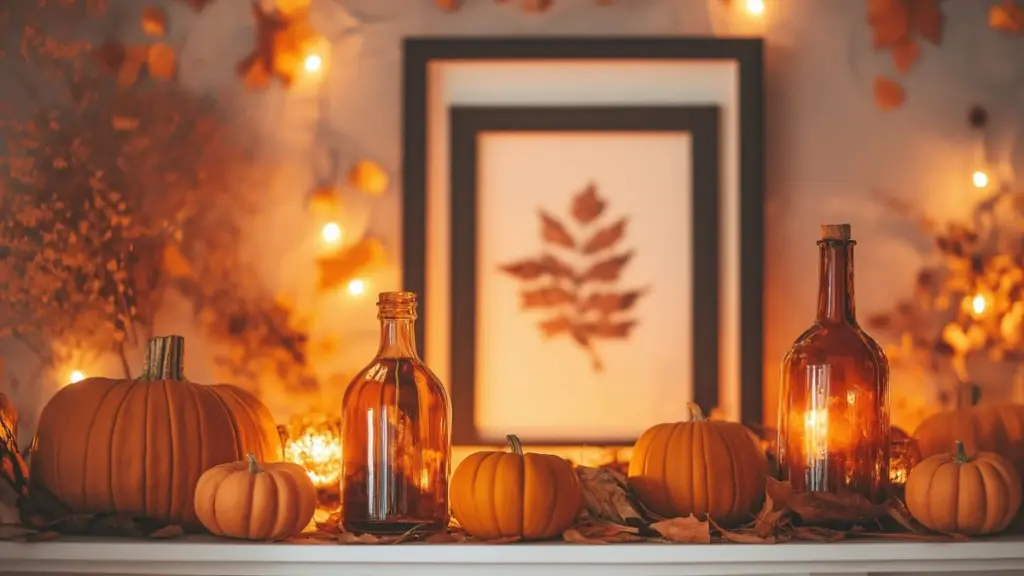
A fireplace gives you the unique opportunity to celebrate each season with style. From garlands in winter to fresh florals in spring, decorating the mantel and hearth seasonally adds a dynamic and festive layer to your great room.
In winter, cozy textures like velvet stockings, pinecones, and candles create an inviting atmosphere. Spring calls for fresh greens and pastel vases. Summer brings in natural elements like driftwood, coral, or woven baskets, while fall thrives on pumpkins, amber glass, and dried arrangements.
Rotate your color palette and accents with the seasons to keep the fireplace feeling fresh without a major redesign.
Seasonal Styling Table
| Season | Décor Elements |
|---|---|
| Winter | Garland, candles, knit stockings, wood textures |
| Spring | Pastel ceramics, tulips, fresh greenery, botanical prints |
| Summer | Shells, jute textures, blue vases, breezy fabrics |
| Fall | Amber glass, dried florals, pumpkins, gold-accented lanterns |
Coordinating Built-Ins and Storage Around the Fireplace
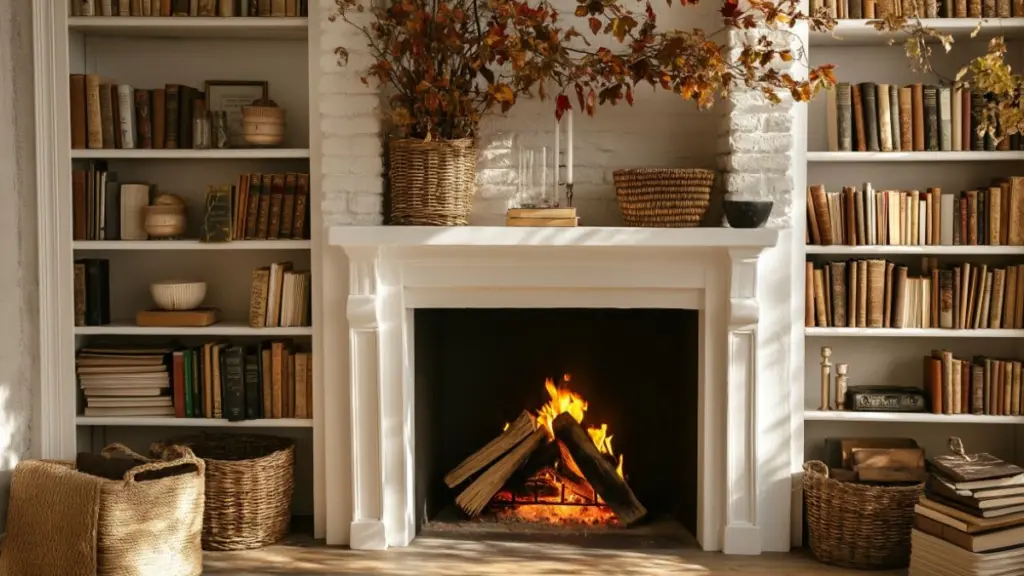
In many great rooms, the fireplace isn’t alone—it’s flanked by built-ins or storage solutions that enhance both form and function. Done well, built-in shelves, cabinetry, or benches can frame the fireplace beautifully while offering practical storage for books, tech, and décor.
For a seamless look, match the materials and paint color of the built-ins to your trim or mantel. Mix closed cabinetry below with open shelving above to keep things balanced. Decorate the shelves with intention: group items in odd numbers, vary height and texture, and leave some breathing space so it doesn’t feel cluttered.
Floating shelves are a modern alternative and work well in contemporary rooms. For rustic spaces, try reclaimed wood shelving with wrought-iron brackets.
Built-In Styling Tips
| Design Element | Purpose & Effect |
|---|---|
| Lower Cabinets | Store media equipment or seasonal décor out of sight |
| Open Shelves | Display books, baskets, and curated objects |
| Arched Niches | Add softness and traditional charm |
| Symmetry vs. Asymmetry | Choose layout based on visual flow and fireplace type |
Conclusion
A fireplace in a great room is more than a heat source—it’s an emotional and visual anchor that sets the tone for warmth, gathering, and timeless style. Whether your home leans modern, rustic, or classic, incorporating a fireplace as the focal point brings both form and function to your space.
From choosing the right style and materials to styling the mantel and coordinating surrounding elements, every detail around your fireplace helps shape the atmosphere of your living room. Thoughtfully layered lighting, textures, and seasonal touches ensure the fireplace remains not just a feature—but the heartbeat of your home.
